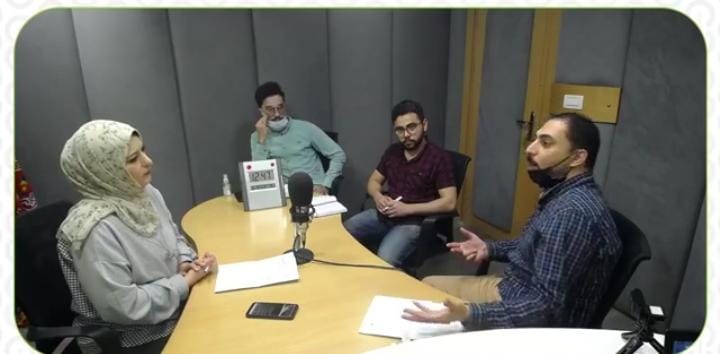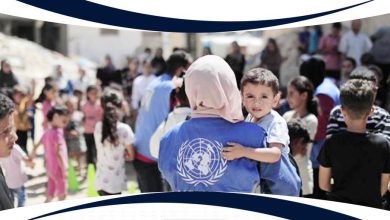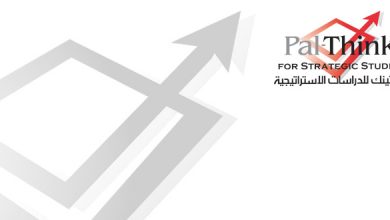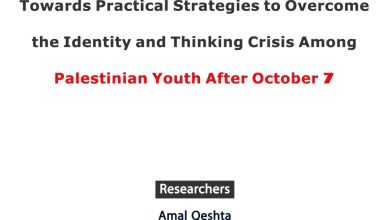Pal-Think Implemented the Second Broadcast Episode Governance and Its Enhancing Mechanisms of the “Dialogue with Youth”

What is governance? What are their levels, dimensions and mechanisms for their implementation? What is the role of civil society organizations in their work?
Abdullah Hassanaen and Sami Shaqoura, members of the Pal-Think’s Civic Education Corps, and Bakr Al-Turkmani, lawyer and the investigations coordinator of the Independent Human Rights Commission, answered these questions during a radio episode of “Dialogue with Young People,” broadcast on Sunday Zaman Radio. It is worth noting that this broadcast is implemented by Pal-Think for Strategic Studies and funded by the National Endowment for Democracy, NED, within the project “Civic Education Coprs” which aims to promote democratic values and human rights among students of Palestinian universities.
Mr Sami Shaqura, the corps’ member, opened the workshop by reviewing several definitions of governance, most notably the definition of the World Bank as the way in which power and resource management of society is exercised to achieve sustainability.
He pointed out that good governance is about the compatibility of public policies with the needs of the people. Then he stressed that the most important contributions to good governance include: individual and collective accountability, necessary civil and political liberties, freedom of information, a stable political life, peaceful circulation of power, the ability of the Government to provide public services to the people, appropriate legislation and transparent justice.
What are the three dimensions of governance? Shaqura replied that the first is the administrative and institutional dimension, which concerns the effectiveness and efficiency of public administration. Then he stated that the second is the economic and political dimension and the nature of public policies in the political and economic spheres. After that, he noted that the third is the representative political dimension, which concerns the nature of power in the State, the legitimacy of its representation and the requirements of the political development and sustainable process.
Meanwhile, Civic Education Corps member, Mr Abdullah Hassanaen said that governance standards varied depending on which institution developed the concept. UNDP has developed eight criteria, which are the most comprehensive and diverse:
Firstly, Political participation in which every man and woman has a right and a voice in the decision-making process. Secondly, transparency and the free and accessible flow of information. Thirdly, equality and equal opportunity. Fourthly, accountability including the public and private sectors and civil society. Fifthly, the rule of law, so that the only reference for all conflicts in society. Sixthly, effectiveness and efficiency in which institutions, with their respective competencies, produce something that meets the needs of society. Seventh, the optimal use of resources, the compatibility of the will and the primacy of the public interest over the private interest. Eighthly, the harmonious differences, and the short- and long-term vision and strategy of the institutions.
Hassanaen also explained that there were three levels of governance: first, the level of the public sector, namely government and governance enforcement institutions. Second, the level of the private sector and its reference to the 2009 Palestine Code of Conduct and Corporate Governance. Third, the civil society frameworks.
He also emphasized the impact of the role of civil society in promoting good governance, being the link between society and the public and private sectors. Mr Hassanaen further stressed that civil society plays a decisive role in many societal and pivotal issues, such as promoting governance principles within their own policies. Besides, it plays an informed role in promoting governance, its principles, standards and methods of application, as well as in promoting transparency, and in enforcing its role of monitoring the performance of government and civil society institutions.
In the same context, Mr Bakr Al-Turkmani, the investigations coordinator of the Independent Human Rights Commission, said that there is no law to obtain information in Palestine. However, it is based on some of the principles contained in the Anti-Corruption Act, which referred to certain transparency clauses assigned and adhered to by the Palestinian Authority and the State of Palestine, such as the Illegal Gain and Anti-Corruption Act.
He added that they had many laws closed to inclusion, and the lesson is that there is no legal text or articles and although in their separate laws, there are different legal texts that speak of access to information. He further noted that the Safety Foundation has submitted a bill on the right of access to information, which is missing. Mr Al-Turkmani argued that although this law is a priority, it is not a priority for the governing bodies. Yet it is a very serious indicator because there is no law governing access to information, the time and the cost of obtaining information.
He continued by arguing that there was information that must be available to the public for free, and there was information that is denied access only within a narrow circle, and there was information that they only access upon request. Then he stressed that all of these had been included in the draft bill on the right of access to information. Unfortunately, the draft has not been submitted to the legislature or the President, nor has it been approved by them.
He went on by saying that there was some information that may be available to journalists and not to others, and they had great difficulty in obtaining information, while if they had an actual law that holds those who do not provide information accountable for changing the matter, this will help in preventing such violations. He continued by stating that while some institutions make their information available, to reduce suspicion. Even if the institution is impartial and its information is withheld, it hurts it.
What’s the impact of getting information? The lawyer replied and said that an individual makes his or her obligations by knowing where taxes or funding go, thus being satisfied with the performance of the Government while accountability is absent.
He also stressed that the elections had given hope to young people that there would be diversity in the Legislative Council, which was the most important instrument of accountability. Noting that all sessions of the Legislative Council and the Government are supposed to be public. Bearing in mind that there is information concerning the names of citizens and others that are difficult to disseminate because of their sensitivity, but that there are mechanisms for accessing them.
Al-Turkmani added if they went back to the reports of the World Bank, Transparency International or Safety Coalition regarding the pillars of integrity or the examination of the national integrity system that measure the pillars of integrity such as the judiciary and security, civil society organizations and the civil sector; they find that civil society institutions are among the highest on the pillars of integrity that adhere to the standards of transparency and accountability. This is evident in practice: the disclosure of financial reports and their functions. Then he stated that it is true that there are obstacles and problems, but those problems require efforts to overcome them.




